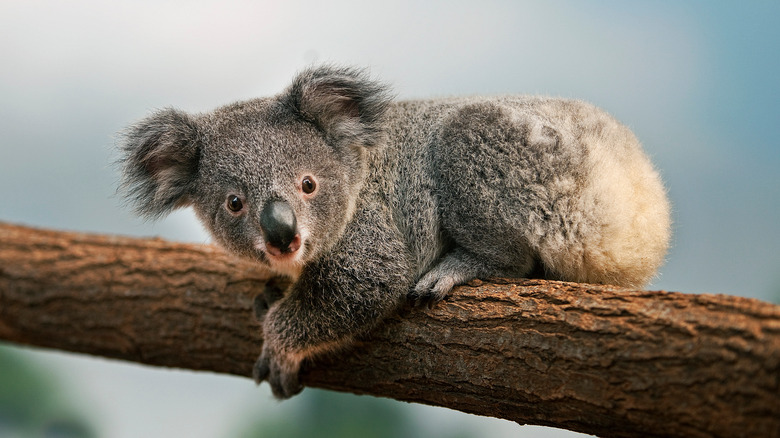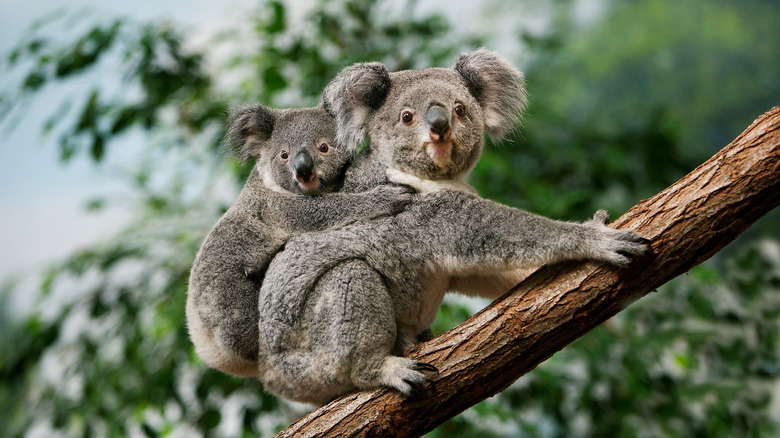The Real Reason Koalas Keep Dying From This STD
In 2013, reports of koalas undergoing treatment for chlamydia were all over the news. In that year, veterinary surgeon Amber Gillett said that she and her team treated approximately 300 koalas who had chlamydia, per BBC. The type of chlamydia in these koalas has a different strain from the sexually transmitted disease in humans, and they affect both male and female koalas. Some of the symptoms include infertility and blindness, as well as urinary tract infections and conjunctivitis. All these can lead to death when not properly treated.
The treatment itself, however, can be fatal for koalas as well. According to CNN, the antibiotics used to treat chlamydia in koalas can destroy their gut, which prevents them from consuming food. Thus, some koalas that are cured of chlamydia sometimes die of starvation. A recent report shows that 85% of the koala population is infected with chlamydia. "If you think about it, that's not a viable population anymore because of infertility. Pretty much every female that's infected with chlamydia becomes infertile within a year, maybe two years maximum ... Even if they survive, they're not breeding," veterinary pathology professor Mark Krockenberger said.
Why are koalas susceptible to chlamydia?
In a study published in the Journal of Virology, researchers found out that koalas who are infected with retrovirus type B — which is in the same family as HIV in humans — are more susceptible to catching chlamydia. Just like in humans, chlamydia in koalas is sexually transmitted, but baby koalas are vulnerable as well. According to a study, a dangerous strain of chlamydia came from livestock brought by Europeans who colonized Australia in the 19th century (via CNN).
Experts say that koalas are at risk of extinction in different parts of Australia. "We've been doing surveys ... up on coastal central Queensland and you talk to people who remember koalas, and there are records, but they're not there anymore," zoologist Bill Ellis said in an interview with ABC. However, researchers have developed a vaccine, and it is being tested on several groups of koalas. According to the results, the vaccine lowers the infection rate significantly. Once the vaccine is proven to be effective and safe for koalas, it will be administered to them and will be rolled out to wildlife hospitals in different parts of Australia.

